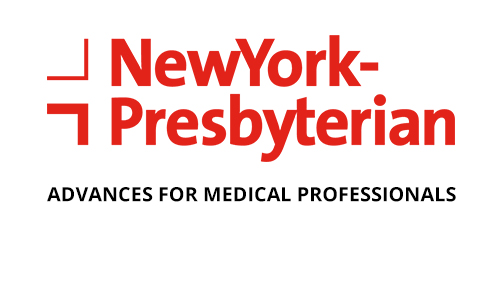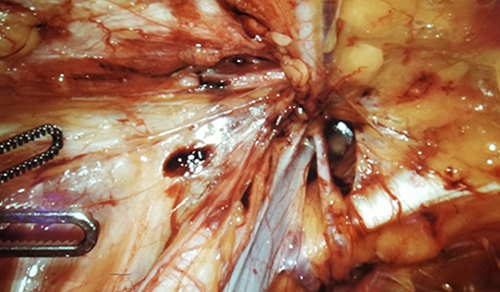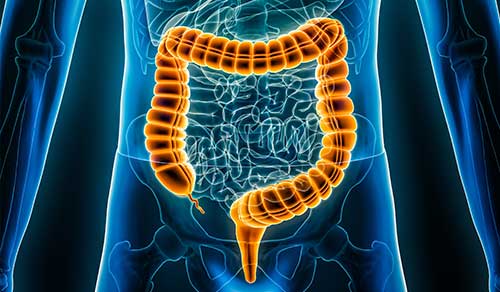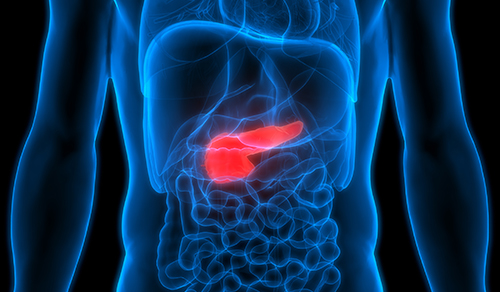Answering the Call: Fellows Redeployed to Aid During Pandemic

Columbia Endocrinology fellows (from left): Nandini Nair, MD; Nina Suda, MD; Joshua Cook, MD, PhD; and Rachel Y. Arakawa, MD
As COVID-19 cases continued to climb during March and April at NewYork-Presbyterian, so did the need to bolster the physician ranks by redeploying residents, fellows, and attendings throughout the Hospital. In the Division of Endocrinology at NewYork-Presbyterian/Columbia University Irving Medical Center, fellows volunteered to go where they were most needed. Following is a snapshot of their experiences under the most trying of circumstances.
Rachel Y. Arakawa, MD, Third Year Fellow
In early March when the world was discovering the horror of COVID-19, our clinics were closed, our operations were converted to video, people were working remotely. This is when our Division of Endocrinology put out a call to action.
I had confidence that I would be okay, but would my patients be okay? That was a little less clear. And then the implications of COVID-19: Will my family be okay? Will my loved ones be okay? But we didn’t have time to think too much about that because we all just reverted to crisis mode. I can’t overstate the incredible team response. Everybody mobilized to act.
We were asked to serve on the hospitalist unit, all inpatient medicine. We were also deployed to the general medicine resident-run service, with an attending overseeing it. We cross-covered the patients who were admitted to either the general floor or the Stepdown Unit. Eventually that role evolved to admitting patients from the Emergency Department. Anyone who was not in ICU level of care was under our jurisdiction. Then part of the ED was cordoned off for ICU level patients, and I spent time on that service as well.
“I found myself holding more patient hands, grasping more shoulders, realizing that if that was the best therapy that I could provide at that moment, then I was okay with that.”
— Dr. Rachel Y. Arakawa
My gut reaction was just this desperation to serve and I think that’s more reflective of our overall culture of medicine, which is a very much do-more, ask-for-less mentality. Dr. Domenico Accili, our chief, was an incredible model of leading by example, because he enlisted on the general medicine service and continued to serve for two months. That really helped the morale of all of our endocrine fellows immensely.
Working on the hospitalist service affirmed for me that first and foremost I am an internist, even though I’m subspecialist trained. Reverting back to my earlier training was important, and it required using certain muscles that definitely had atrophied, like how do you manage COPD exacerbation and heart failure? It’s been a few years, but I was surprised that things came back very naturally.
Being able to assess a patient and know what their clinical trajectory is going to be is a skill that you build. And that skill was very helpful for me on the COVID-19 unit, because it framed the next step, which is to pivot to palliative care, a cornerstone of this COVID crisis. I think the true heroes actually are our palliative care colleagues. Luckily, we had very good training from them during our medicine residency, so I felt very comfortable having difficult conversations with patients and their families when it became clear that the only medicine, in fact, the best medicine that we could provide them was pain management and palliative care. I found myself holding more patient hands, grasping more shoulders, realizing that if that was the best therapy that I could provide at that moment, then I was okay with that.
For those of us in New York, at my hospital and within my fellowship, it was never a question about helping in this crisis. I believe this career is much more than a paycheck, it’s a calling.
Joshua Cook, MD, PhD, Second Year Fellow
During my COVID-19 service, from April 2 to May 1, I spent most of the time in the Emergency Department admitting patients. I would stabilize them, figure out what was going on, and make sure they made it to the next stage of their care. This called on a lot of my general internal medicine training. I also had a number of patients who were having diabetes emergencies, likely related to COVID-19. So, my endocrinology training was useful in that I didn’t have to consult an already overburdened diabetes consult service.
I also worked on the Stepdown Unit, taking care of patients who were intermediate between the standard inpatient unit and the ICU. Patients who previously would have been sent to the ICU could no longer get ICU beds because there were even sicker people who needed them. We generally had teams of three attendings and physician assistants taking care of the patients. With COVID-19, intubation is dangerous for the people doing it, because it generates aerosols from the patient’s respiratory tract. When patients were intubated, they were moved to a negative pressure room.
“The patients benefited from having all these dedicated healthcare providers, but I think we got something out of it, too. It reminded us of who we are.”
— Dr. Joshua Cook
We were not only taking care of these very sick patients, but we also counseled the families with goals of care. We worked with the family and helped them take stock of the situation and what it meant for the patient’s quality of life if they were to be intubated. Endocrinology is an outpatient specialty for the most part and we’re not usually working in the ICU. This experience has given me a different appreciation for people who have very serious medical conditions.
There’s just no social distancing from the patient even when you wear your PPE, goggles, helmet, and mask. You knew that the air was just suffused with pathogens and it’s getting on your clothes and on the back of your neck. I think you have to teach yourself not to think about it because you know that there’s no real way to avoid coming into contact with the virus. Wearing PPE reduces the risk but doesn’t eliminate it. So, you just have to accept that risk and say this is what I signed up for. I wanted to help people. I didn’t say I only wanted to help them when it was convenient or when everything was fair weather. I’m willing to put myself in harm’s way in order to do what needs to be done. And at the same time, I give a lot of credit to the spouses, children, and other family members of healthcare providers, who, knowing that there was going to be a risk to them, too, still supported their family member through it.
This experience reminded me in many ways of why I became a doctor in the first place. It made me feel like a doctor, and that’s not something that I always feel when I’m dealing with insurance companies and schedulers and all the paperwork. When I walked out of the hospital at the end of the day, I felt like a doctor, and in a way, that was the reward for me. Obviously, the patients benefited from having all these dedicated healthcare providers, but I think we got something out of it, too. It reminded us of who we are.
Nandini Nair, MD, Third Year Fellow
Being part of a medical training program, we have both the privileges and responsibilities that come with being part of a local and academic community. Knowing that we had training to help treat patients and to support our fellow healthcare workers, my co-fellows and I wanted to join the COVID-19 efforts in whatever way we could.
My inpatient time started around the second week of April, when I spent a few weeks as an attending physician working with residents on a general medicine service. It was challenging and impactful. I witnessed workers coming together from all different parts of our own hospital system, and I was amazed by how many people joined from other places to help.
The residents I worked with had already been treating patients with COVID-19 for a few weeks before I started. I learned a lot from them. They demonstrated dedication as well as adaptability both in terms of the roles they assumed as well as in their approach to disease management. When I started on the inpatient service it was still fairly early in our exposure to this disease, and there were so many questions that we were all grappling with – questions about the role of hydroxychloroquine, the risks and benefits of steroids, and types of respiratory management amongst a long list of other uncertainties. Everything was in flux and being a part of this bigger community facilitated dissemination of information and a sense of togetherness in our goals of helping patients and supporting one another.
“Everything was in flux and being a part of this bigger community facilitated dissemination of information and a sense of togetherness in our goals of helping patients and supporting one another.”
— Dr. Nandini Nair
Communication was critical in advancing our ability to manage COVID-19-related symptoms and complications. We also had healthcare system-related questions. NewYork-Presbyterian leadership was working hard to provide updates. Patients and families also wanted information, and our ability to communicate with them during this time was so important. Families that would normally be at the bedsides of their loved ones now couldn’t be and providing them with information amidst stress and uncertainty was a crucial part of inpatient care. Video and email broadcasts, teleconferences, video visits, and phone calls are examples of ways in which communication occurred at different levels.
Adaptability and effective communication are important parts of medicine at all times. Their need was just so clearly highlighted in this time of crisis. I wanted to actively work on these skills to better serve patients and colleagues. I learned from those around me. My time on the inpatient service highlighted what colleagues had relayed to me before I started – that COVID-19 affects every organ system. Ultimately, I saw how this one disease calls on providers to think about each individual patient’s care in such a comprehensive way.
Nina Suda, MD, Second Year Fellow
I come from a family of doctors. My father is an endocrinologist as is my older sister and my mom is a pediatrician. I chose endocrinology to combine my love of medicine and to do research, which is what I was doing when the pandemic hit in March. I was in the lab working with mice models and needed to tie that up before I joined my colleagues in the hospital.
I signed up for wherever the need was – the medical ICU, ED – wherever. I was fortunate to have heard about a few cases and complications of COVID-19 learning that the virus can affect every organ. Having that mindset helped me tremendously because it was about keeping your differentials broad with these patients coming in. It wasn’t just about the lungs or shortness of breath, but how it affects nearly every organ from the liver to causing strokes to coagulopathies. That framed how I approached my first clinical duty on the pop-up Stepdown Unit. My role was dealing with very sick patients, not intensive care level, but teetering to that transition of care.
“Seeing all the tragedy over these last few months has made me want to continue to give back in any way I can. That’s going to be my motivation and goal for the rest of my life.”
— Dr. Nina Suda
I had 15 patients on my service, and I saw things that I never saw in residency. These patients were getting a combination of maximum oxygenation – the nasal cannula plus the 100 percent facial mask. I had never tried that combination in medical school and never thought it was possible. We were utilizing various strategies to help these patients.
I walked into the room and it was just me and the patient. And I thought to myself, the family can’t be here, it’s me. I realized I had a wonderful opportunity to help these patients who were just so lonely. The nurse and I were the only people who could come in to help them. Besides helping them every way medically possible, I also needed to comfort them. We might be the only humans that touched them all day, and who knows how long they would be there. I talked to them, listened, and placed my hand on them. If they couldn’t hear me, I came closer.
I feel so blessed for having gone through this process. Everybody at NewYork-Presbyterian did a tremendous job of mobilizing each other, coming up with new solutions on how to treat this disease, and just the sheer compassion of so many individuals. Seeing all the tragedy over these last few months has made me want to continue to give back in any way I can. That’s going to be my motivation and goal for the rest of my life.
I’m currently back in the lab doing my experiments studying new mechanisms and pathways for obesity induced insulin resistance. Fortunately, all of our fellows are healthy, so everybody has gone back to their respective roles of whatever training they are pursuing in fellowship.
Related Publications







